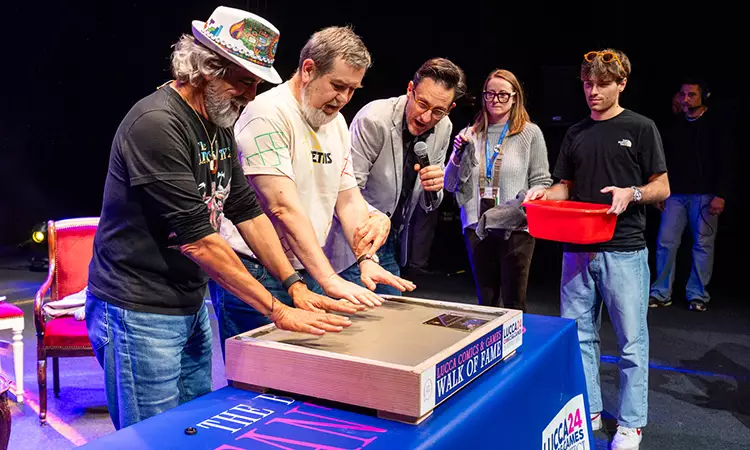Tetris, designed by Russian game developer Alexey Pajitnov in 1985, has transcended traditional gaming barriers to become a cultural touchstone. Initially birthed from a simple prototype featuring falling blocks, it carried no scorekeeping, analytics, or visual embellishments; it was pure gameplay. Pajitnov recalls his early connection to the game, revealing, “I couldn’t stop playing! I gave myself the excuse that I was debugging something but in reality, I just enjoyed playing it.” This unabashed joy and the addictive nature of those simple falling blocks marked the inception of one of the most successful video game franchises in history.
Tetris has since claimed significant accolades, including the Guinness World Record for being the “most prolific puzzle video game series” and for its extensive reach through over 50 official iterations. However, its journey from an experimental project to a globally recognized masterpiece encountered significant hurdles—most notably, the complexities of international distribution during a time when copyright laws within the Soviet Union forbad the export of intellectual properties.
The history of Tetris is interwoven with the story of Alexey Pajitnov and Dutch-Indonesian entrepreneur Henk Rogers. Their first meeting marks a significant nexus in the game’s evolution, as Rogers was captivated by Tetris at a Consumer Electronics Show: “I was standing in the Tetris line for the fourth time when I said, ‘Oh my God, I can’t stop playing this game!’” This moment of revelation for Rogers underscored the game’s compelling nature and set the stage for their collaborative efforts to navigate the tricky waters of distribution and licensing rights.
The challenges the duo faced were myriad, exacerbated by the rigid regulatory framework of the Soviet Union. Rogers and Pajitnov’s relationship evolved over decades, ultimately becoming a crucial partnership that not only brought Tetris to Western markets but also formed the foundation of their enduring friendship.
In 2023, their gripping story was adapted into a film directed by Jon Baird, featuring Taron Egerton as Henk Rogers and Nikita Yefremov as Alexey Pajitnov. The film, while dramatized, engages with real historical events that shaped the game’s legacy. Both Pajitnov and Rogers participated in the script’s development, ensuring authenticity while addressing misconceptions. Upon its release, the duo experienced emotional reactions to various storylines depicted in the film, expressing surprise at inaccuracies that stirred feelings of nostalgia—even when those memories were fabricated for cinematic effect.
Pajitnov reflected on one particular misalignment with historical accuracy related to the portrayal of the ELORG building, the Soviet organization pivotal to the licensing of Tetris. Contrary to the film’s cold and modern depiction, Pajitnov described the actual headquarters as “an absolutely beautiful 18th-century mansion.” It is a testament to the art of film that while it strayed from reality in some aspects, it also enriched the audience’s experience, showcasing the poignant cultural landscape of the time.
Marketing Tetris presented its challenges, mainly due to preconceived notions around a “simple block game.” In efforts to penetrate international markets, certain strategies were employed that emphasized its origins, especially capitalizing on the recognition of classic Russian folk music, Korobeiniki. Rogers noted the unconventional tactic: “They were marketing the game as a Russian game because who wants to play a simple block game?” The decision to use this timeless melody was serendipitous; now, it is inseparable from the gaming experience, reinforcing Tetris’ roots while creating a recognizable brand identity.
This musical choice also illustrates a broader phenomenon in gaming culture—how soundtracks can evoke nostalgia and strengthen connections to gameplay. The absence of existing copyrights on Korobeiniki positioned Tetris uniquely to claim ownership of this cultural piece, enriching its legacy as it continued to evolve.
In the years since its inception, the Tetris franchise has seen a resurgence, adapting to various platforms, with countless versions captivating players worldwide. Its success is not only a reflection of the innovative gameplay that Pajitnov originally envisioned but also attests to the collaborative spirit that propelled it into the global marketplace. As new generations discover Tetris, whether through modern consoles or classic remakes, its core gameplay, delightful simplicity, and profound cultural impact continue to resonate in the hearts of players.
In closing, Tetris stands as a landmark achievement in gaming history—a story of creativity, perseverance, and friendship that has irrevocably changed how we view and interact with video games. As Rogers reflects in his upcoming book, “The Perfect Game: Tetris: From Russia With Love,” the intricate narratives surrounding the game illuminate not just what it means to play Tetris, but also the ongoing journey of gaming as a whole.

